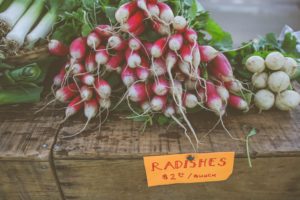The coronavirus crisis has revealed our resilience and our compassion, both as individuals and as communities. From my mother, aunt, and many others who are sewing masks; to people delivering groceries to their elderly neighbors; to school districts continuing to provide free pick-up meals for kids—even those that aren’t old enough for public school yet—we are rising to an unprecedented challenge.
On the societal level though, this crisis has highlighted how unstable our economy is and how ill-prepared we are to handle crises. Unemployment has skyrocketed, the stock market has plummeted, and most Americans are not in a position to financially weather this storm. Hospitals across the country are facing shortages of masks, gloves, medications and ventilators.
Rebuilding from this crisis gives us the opportunity to rebuild stronger. State and federal governments are about to invest huge sums of money to reboot our economy—and it doesn’t have to be used to rebuild the exact same system we had before. Instead, it should be invested in making people, businesses, communities, and our country more resilient to future crises—including pandemics, extreme weather events, and economic upsets. Many measures that increase resiliency also help to address ongoing problems in our society, including some that Maine Conservation Voters works on such as climate change and environmental degradation.
Our food system is a great example. One of the scariest thoughts I’ve had during this pandemic was what if we stop being able to ship food across the country? The vast majority of Maine’s food is imported from elsewhere, making us incredibly vulnerable to supply chain disruptions. But what if it wasn’t? What if, instead of investing in large industrialized farms in a couple areas of the country, the government recovery plans invested in local farms across the country?
MOFGA’s Executive Director Sarah Alexander wrote an excellent piece recently about how recovery funds should be used in Maine. She highlights that Maine farms should be eligible for recovery loans, that funding for the Mainers feeding Mainers program should be increased, and that in-state food processing and distribution capacity needs to be ramped up. These steps would support Maine farmers today and increase the resilience of our local food system for years to come. On the national scale, imagine what we could accomplish if we created an Agriculture Corps that put people back to work and expanded our small-scale farming capacity across the country.
Investing in small, local farms would make communities more resilient to crises and help to address ongoing issues. For example, increasing the number of farms could reduce the carbon pollution associated with trucking food across the country – helping to address climate change. Smaller scale farms can also more easily utilize regenerative agricultural methods that preserve nutrient-rich topsoil. This topmost layer of soil is vital for growing food – and it’s being eroded and degraded more than nine times faster than it’s being formed in the U.S., threatening our ability to grow enough food in the future. Industrialized agriculture contributes to this crisis in many ways that smaller-scale, regenerative agriculture could help reverse.
There are many other systems in our society—including our healthcare, energy, worker protections, transportation, internet, and elections systems—that could be made more resilient, while addressing ongoing problems. Across these sectors, the message remains the same: It would be a huge missed opportunity if government recovery programs invest in our current systems. Relief funds should be used to make our country more resilient to future crises and to address ongoing issues. If they are, we can come out of this crisis with a stronger and more prosperous country.
